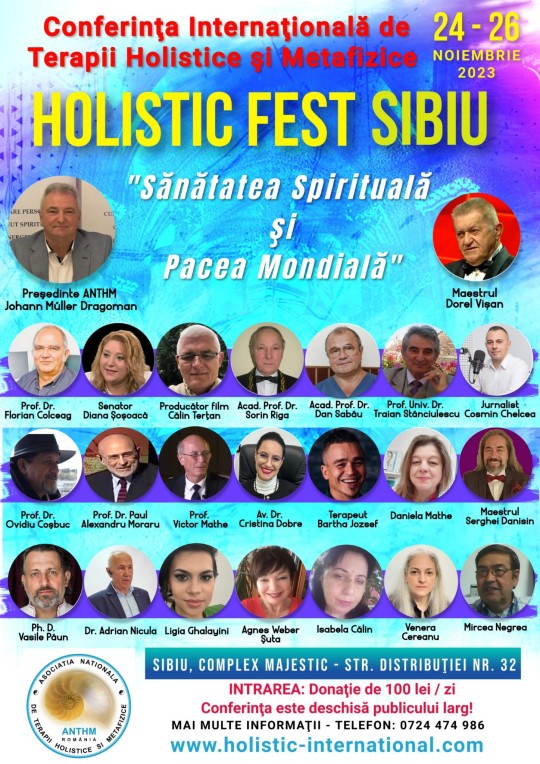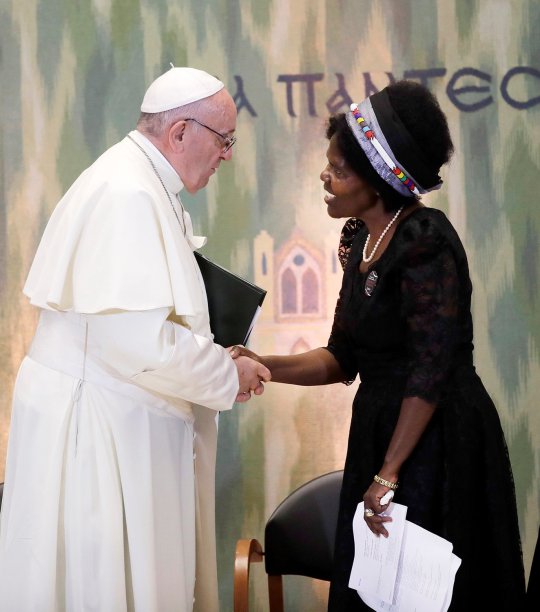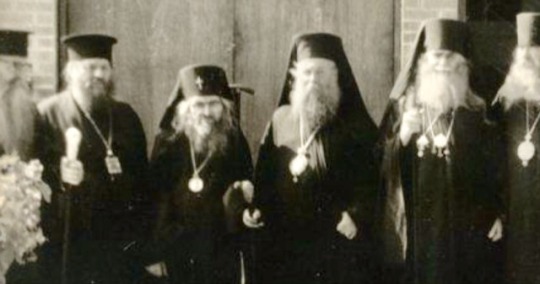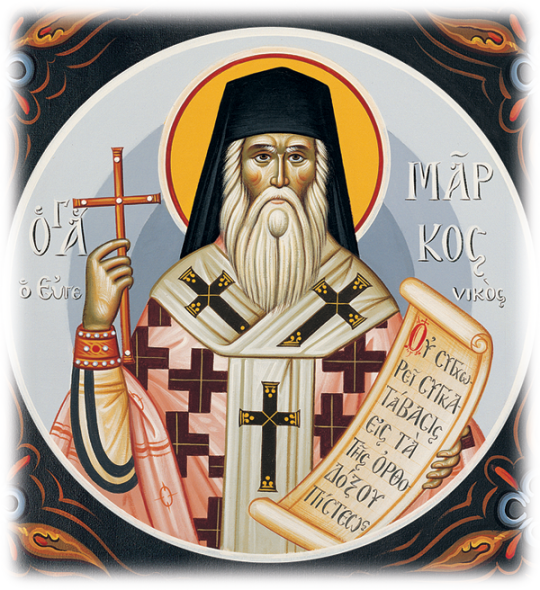#ecumenist
Text
De nici un folos nu este viața curată dacă învățăturile sunt stricate https://c.aparatorul.md/w404u
0 notes
Text
Ecumenism and Foolishness, Be Gone
2 Corinthians 11:1
Would to God ye could bear with me a little in my folly: and indeed bear with me.
——————–
The Corinthians were ecumenists, and today they are particularly rife on Facebook. The modern lingo for “ye might well bear with him” is “let’s all just agree to disagree”.
2 Corinthians 11:4For if he that cometh preacheth another Jesus, whom we have not preached, or if ye receive…
View On WordPress
0 notes
Text
Diana Șoșoacă NU renunță la drăcismele ezoterice și ecumenist interreligioase! „Holistic Fest 2023” Sibiu 24-26 noiembrie cu Dorel Vișan, Florian Colceag, Diana Șoșoacă și alți ezoteriști, yoghini, șamani etc
Deși i s-a mai explicat sau i s-au dat cărți, Diana Șoșoacă NU înțelege sau NU VREA să înțeleagă nocivitatea ecumenismului, a New age-ismului ezoterist. Probabil influența cercurilor în care se învârte mama sa a fost și este destul de puternică. Conferința internațională de „Terapii Holistice și Metafizice din România – Holistic Fest 2023”, s-a […]Diana Șoșoacă NU renunță la drăcismele ezoterice…

View On WordPress
0 notes
Text
A recent study has revealed a worrying trend among ecumenists: thump, the ritualistic clapping of the hands during prayers, is vanishing from prayers and slowly disappearing.
Thumps have long been a part of ecumenical prayer, particularly in the Roman Catholic and Orthodox Christian traditions. The practice, which can be traced back to ancient Jewish and early Christian ceremonies, is seen as a sign of humility and reverence and is often used to signify the presence of the Holy Spirit.
But the study, conducted by researchers at the University of Navarra in Spain, has shown that thumps are being replaced by other prayers and gestures, including hand crossing and head bowing. The researchers found that in just a few decades, thump has all but disappeared from group prayers and liturgical gatherings.
The study suggests a number of reasons for the decline of thumps. One is the increased use of technology during prayer; modern devices such as smartphones and tablets distract from the solemnity of thump and may even replace it for some devotees. Furthermore, as the world becomes increasingly interconnected, many Christians do not wish to stand out from their peers by engaging in seemingly 'old-fashioned' practices.
The findings of the study are concerning for ecumenism, which promotes universal acceptance and understanding among Christian denominations. Ecumenists argue that abandoning thump during prayer removes a crucial symbol of religious unity and encourages divisions between denominations. Moreover, some believe that without thump, it becomes harder to recognize, and appreciate, the communal act of praying.
Although thumps are disappearing, ecumenists are exploring ways to revive the practice, in order to keep it alive for future generations. Though it remains to be seen whether thumps will return to its previous levels of ubiquity, this invaluable tradition will continue to be remembered and respected.
0 notes
Text
Agnes Abuom, global ecumenist, peacemaker and African church leader, dies at 73
2023-06-02 17:15:00Agnes Abuom, worldwide ecumenist, peacemaker and African church leader, passes away at 73REGISTERED NURSES)– A long time authorities with the World Council of Churches, Abuom played a substantial function in the look for peace in Sudan and South Sudan after the latter gotten
NAIROBI, Kenya (RNS)– Agnes Abuom, an international ecumenical leader and peacemaker, passed away on…

View On WordPress
0 notes
Text
I understand where ecumenists are coming from but also no
1 note
·
View note
Photo

2 notes
·
View notes
Text
Today in Christian History

Today is Monday, January 21st, the 21st day of 2019. There are 344 days left in the year.
Today’s Highlight in History:
1217: Matthew Paris is clothed as a novice at the Abbey of St. Albans in England. He will be remembered as a monk who chronicled English history.
1525: Anabaptists come into being in Zurich when Conrad Grebel baptizes George Blaurock.
1525: Hans Denck, a schoolmaster who argues that Lutheran reform is empty unless accompanied by the inward light of the Spirit, is banished from the city of Nuremberg.
1549: The English parliament passes “An Act for Uniformity of Service and Administration of the Sacraments throughout the Realm” which establishes the first Book of Common Prayer in Edward’s reign.
1575: William Byrd and Thomas Tallis are awarded letters patent giving them the exclusive right to print music in England, and to print ruled music paper. Effective for twenty-one years, this is the first patent of its kind. The first work printed under the patent will be their own Cantiones (1575), containing 34 motets, half by Tallis and half by Byrd.
1609: Death in Leyden, Netherlands, of Joseph Justus Scaliger, famed for putting ancient chronology onto a scientific footing.
1672: A Bedford, England, congregation calls John Bunyan as its pastor. He is in prison at the time for preaching.
1750: Newly-ordained missionary Christian Friedrich Schwartz embarks from London for Tranquebar, the seat of the Danish Mission in India. Four months after arriving, he will preach his first sermon in Tamil and afterwards will conduct a successful work.
1781: Robert Aitken petitions the U.S. Congress to officially sanction his publication of the first English-language Bible printed in America.
1901: At the Academy of Music in Kansas City, Charles Parham preaches his first sermon dedicated soley to the experience of the baptism of the Holy Spirit with the evidence of speaking in other tongues.
1913: Death in Philadelphia, Pennsylvania, of Fanny Coppin, an ex-slave who became an educator to her people, principal of the Institute for Colored Youth, an inspiration to the African Methodist Episcopal Church, and a missionary to South Africa.
1914: The American Lutheran Publicity Bureau is organized in New York City to inform the general public about The Lutheran Church—Missouri Synod.
1921: Presbyterian minister Samuel McCrea Cavert, a notable ecumenist, becomes the General Secretary of the Federal Council of Churches of Christ in America. A chief player in forming the World Council of Churches, he will die in 1976. “The temptation of Protestantism has always been to magnify freedom at the expense of unity. The temptation of Roman Catholicism, on the other hand, has been to magnify unity at the expense of freedom.”
1931: Soviets execute the Orthodox priest Peter Alexeyevich Bulgakov for “agitation against Soviet power.” He had long resisted their efforts to get him to abandon his faith and three months before his death had refused to hand over church keys to them.
1956: Elders of the Little Flock and twenty-eight other Christian leaders in Shanghai are arrested. They have carried on the work begun by Watchman Nee, who is in prison.
#Today in Christian History#January 21#Fanny Coppin#principal of the Institute for Colored Youth#African Methodist Episcopal Church#African missionary#educator#American Lutheran Publicity Bureau#Samuel McCrea Cavert#World Council of Churches#ecumenist#General Secretary of the Federal Council of Churches of Christ in America#Soviets#execute#Peter Alexeyevich Bulgakov#refused to renounce faith#Christian leaders in Shanghai are arrested#John Bunyan#William Byrd#Thomas Tallis#Christian Friedrich Schwartz#Danish Mission in India#tamil language sermons#Anabaptists come into being
3 notes
·
View notes
Photo

‘Do we have Mysteries or not?’ A striking and Grace-filled contemporary discourse by a now reposed Presbyter, from among our Matthewite brethren, renders more accessible the view that we have been articulating:
#Against Ecumenism#Confession of Faith#Ecumenism#Ecumenists#Genuine Orthodoxy#Metropolitan Philaret of New York#Monastery of St. John the Wonderworker#ROCOR#St. John the Wonderworker#True Orthodox Christians of Greece
13 notes
·
View notes
Text
Papa, conducătorul cultului catolic, s-a pus mai presus de Dumnezeu, exact ca Lucifer cel căzut, condiderîndu-se infailibil #Catolici #eretici #papa #PapaFrancisc https://c.aparatorul.md/qki8c
0 notes
Text
Encounters
I have recently encountered (which isn’t unusual) ecumenists whose idea(l) it is to bring all types of Christians under one roof, regardless of which Bible they uphold and which doctrine they believe, as “there is way too much fighting amongst Christians of differing beliefs”. Ecumenism at its most ignorant best. I guess, meeting “with God” every Sunday and “feeling the Spirit move” sure makes…
View On WordPress
0 notes
Text
Shocking Protestants: Warren Lewis and Quintin Hogg as accidental ecumenists
Shocking Protestants: Warren Lewis and Quintin Hogg as accidental ecumenists
Pope St Paul VI receives the Archbishop of Canterbury, Michael Ramsey, in the Sistine Chapel on 24 March 1966.(Keystone/Hulton Archive/Getty Images)
To claim that a low opinion of Catholics and Catholicism could be found in various quarters of the British establishment through to modern times would hardly constitute a revelation. To add that such sentiments were still abroad in…

View On WordPress
0 notes
Text
A key concept in Augustine's great The City of God is that the Christian church is superior and essentially alien to its earthly surroundings. Later medieval church theologians like Thomas Aquinas introduced an alternative hypothesis, counseling that God's natural law enabled Christians to enjoy a sensible engagement with the world, a theology that gives hope to Catholic social activists and ecumenists. But Ratzinger, once asked to name two desert-island books, picked the Bible and Augustine's Confessions. Avery Dulles, a Cardinal and a well-known American theologian, said about the new Pope last week, "It's the two cities: city of God and city of man. He sees a world very much in conflict."
- David Van Biema, The Turning Point: How the upheavals of 1968 turned a Vatican II reformer into an ardent conservative
9 notes
·
View notes
Text
HOMILY ON ST MARK OF EPHESUS ( fst.1/19)

By Archpriest Besil Rhodes
In the Name of the Father and the Son and the Holy Spirit. Amen.
Dear Ones, In this morning’s Gospel the crowd tells the blind man that all the excitement around him is due to the arrival of Jesus of Nazareth. The blind man cries out, “Jesus, son of David, have mercy on me!” The crowd says “Jesus of Nazareth,” but the blind man, alone, cries out “Jesus, son of David!” The crowd only sees a man, a holy man, a prophet perhaps. The blind man is the only one who “sees” the Messiah, the son of God!
It’s easy to get swept away with the opinion of the crowd. It’s very difficult to stand alone against the tide of popular opinion. Politics can be especially challenging for Christians. The very words “politics” is derived from the Greek word “polis” meaning “city.” Politics is about things pertaining to this world and is, by its very nature, worldly. But what does St Paul say about us, about Christians? “Here we have no continuing city, but we seek the one to come” (Hebrews 13:14). The Kingdom of Heaven is our true city. The climax of the book of Revelation is the vision of the Holy City, the heavenly Jerusalem, a jeweled city of light. This beautiful vision signifies the church, the called-out people of God, in all her eternal glory (Revelation 21:9-27).
Today on the Church calendar we celebrate the memory of two wonderful saints. First we celebrate St. Macarius the Great of Egypt, a 4th century ascetic and a disciple of St. Anthony the Great. He wrote the book called 50 Spiritual Homilies. Have you read it? It’s a classic. Everyone should read it! But today I want to focus on the second saint of the day, St. Mark of Ephesus, a man whose earthly city betrayed him, a man who who stood alone against the crushing power of earthly politicians and ecclesiastical apostates. St. Mark of Ephesus – a pillar of Orthodoxy and a prophet for these end times. Let’s find out why.
In the 1430’s, the once-glorious Eastern Roman Christian Empire (called “Byzantine Empire” by her detractors) was crumbling. Reduced to Constantinople and some surrounding territory, Greek diplomats were desperate to find a way to enlist Western powers to help battle against the common enemy of Christianity, Islam. The Turks would hear nothing of treaties. Their dream was to conquer the great Christian capital. For there to be any hope for rescue, the emperor, the politicians, the Patriarch of Constantinople all believed that it was necessary above all to make peace with the Vatican. So, “a Council was convened in 1437, which established a committee of Latin and Greek theologians with the Pope and the Byzantine Emperor acting as heads. The Pope, Eugenius IV, had a very exalted idea of the papacy and aimed at subjecting the Orthodox Church to himself. Prompted by the straitened circumstances of Byzantium, the Emperor pursued his aim: to conclude an agreement profitable for his country. Few gave thought to the spiritual consequences of such a union. Only one delegate, the Metropolitan of Ephesus, St. Mark, stood in firm opposition.
In his address to the Pope at the opening of the Council, St. Mark explained how ardently he desired this union with the Latins- but a genuine union, he explained, based upon unity of faith and ancient Liturgical practice. He also informed the Pope that he and the other Orthodox bishops had come to the Council not to sign a capitulation, and not to sell Orthodoxy for the benefit of their government, but in order to confirm true and pure doctrine.
Many of the Greek delegates, however, thought that the salvation of Byzantium could be attained only through union with Rome. More and more became willing to compromise the eternal Truth for the sake of preserving a temporal kingdom. Furthermore, the negotiations were of such unexpectedly long duration that the Greek delegates no longer had means to support themselves; they began to suffer from hunger and were anxious to return home. The Pope, however, refused to give them any support until a ‘Union’ had been concluded. Taking advantage of the Situation and realizing the futility of further debates, the Latins used their economic and political advantage to bring pressure on the Orthodox delegation, demanding that they capitulate to the Roman Church and accept all her doctrines and administrative control.
St. Mark stood alone against the rising tide which threatened to overturn the ark of the true Church. He was pressured on all sides, not only by the Latins, but by his fellow Greeks and the Patriarch of Constantinople himself. Seeing his persistent and stouthearted refusal to sign any kind of accord with Rome under the given conditions, the Emperor dismissed him from all further debates with the Latins and placed him under house arrest. By this time St. Mark had fallen very ill (apparently suffering from cancer of the intestine). But this exhausted, fatally ill man, who found himself persecuted and in disgrace, represented in his person the Orthodox Church; he was a spiritual giant with whom there is none to compare.
Events followed in rapid succession. The aged Patriarch Joseph of Constantinople died; a forged document of submission to Rome was produced; Emperor John Paleologos took the direction of the Church into his own hands, and the Orthodox were obliged. to renounce their Orthodoxy and to accept all of the Latin errors, novelties, and innovations on all counts, including complete acceptance of the Pope as having ‘a primacy over the whole earth.’ During a triumphant service following the signing of the Union on July 5, 1439, the Greek delegates solemnly kissed the Pope's knee. Orthodoxy had been sold, and not merely betrayed, for in return for submission, the Pope agreed to provide money and soldiers for the defense of Constantinople against the Turks. But one bishop still had not signed. When Pope Eugenius saw that St. Mark's signature was not on the Act of Union, he exclaimed, ‘And so, we have accomplished nothing!’
The delegates returned home ashamed of their submission to Rome. They admitted to the people: ‘We sold our faith; we bartered piety for impiety!’ As St. Mark wrote: ‘The night of Union encompassed the Church.’ He alone was accorded respect by the people who greeted him with universal enthusiasm when he was finally allowed to return to Constantinople in 1440. But even then the authorities continued to persecute him. At length he was arrested and imprisoned. But whatever his condition and circumstances, he continued to burn in spirit and to battle for the Church.
Finally he was liberated and, following his example, the Eastern Patriarchs condemned the False Union and refused to recognize it. The triumph of the Church was accomplished-through a man exhausted by disease and harassed by the wiles of men, but strong in the knowledge of our Saviour's promise: ‘...I will build My Church; and the gates of hell shall not prevail against it’ (Matt. 16:18).
St. Mark died on June 23, 1444, at the age of 52. This great pillar of the Church was a true ecumenist, for he did not fear to journey to Italy to talk with the Roman Catholics, but more importantly, neither did he fear to confess the fullness of the truth when the time came.” 1.
Through the prayers of our father among saints, Mark of Ephesus, O Lord Jesus Christ, have mercy on us and save us! Amen.
1. Archimandrite Amvrossy (Pogodin)
5 notes
·
View notes
Link
As I settled down to supper and dowsed some bread (Italian) in olive oil (Greek, Kalamata) and enjoyed the reassuring gurgle of some wine (Gascon, ad honorem deiparae Virginis de Lapurdo nuncupatae) I thought of the exquisite biblical phrase 'the corn, the wine, and the oil'. And I recalled that the old Ember Days (commonly ignored now in the 'diocesan Church' ... today [Sept 19, 2018] is an Ember Day!!) grew out of the old Mediterranean harvests (Pentecost: cereals; September: vintage; December: olives. See G G Willis 1964).
Some of the more intelligent American bishops are ordering the restoration in their jurisdictions of the Ember days. These are the Wednesdays, Fridays, and Saturdays of certain weeks which were celebrated as agricultural festivals in the Roman world. They were continued in the Roman Rite, but with a penitential sobriety intended to reform the excesses of the pagan celebrations. Because of the fasting, they became thought of as he ideal times for Ordinations. And so these admirable American bishops are suggesting the penitential use of the Ember Weeks in the context of the present very great crisis in the Church. Needless to say, the Ordinariate Missal retains the Ember Days.
But perhaps we had better start off with a fundamental point about the survival in the Roman Rite of Ember Days. And the theological point is this: our Faith is a Mediterranean faith, rooted in the agricultural communities of the Mediterranean basin, from the Hebrew Patriarchs onwards ... let us never forget that our Hebrew Faith is not 2,000 years old, but three (at least) thousand. And our sacraments are inextricably bound up with the Corn, the Wine, and the Oil. And the denial of the Corn, the Wine, and the Oil is the basic heresy, the elemental root of all error.
I don't only have in mind the iniquity of anti-alcoholism, although that is part of it. The Gnostics, creation-denying dualists, celebrated 'eucharists' in water, and we can share the righteous disgust of that acute theologian Dr Augustus Fagan ("Lloyd George, the temperance movement, Nonconformity, and lust stalking hand in hand through the country, wasting and ravaging"). The fact that Methodists and others commonly use substances other than wine in their communion services is not, as professional ecumenists try to get away with implying, some minor detail, easily fudged. And the disappearance of the Chrism in Protestantism is a real apostasy.
But more insidious still is the idea that the principle of inculturation could be applied to the elements used in the Christian sacraments. I have known suggestions that to use bread made from something other than wheat, alcohol produced not from grapes, and the oil of vegetables other than olives, would 'affirm' cultures which do not find their origins in the Mediterranean basin. This seems to be based on the notion that Christianity is an idea; and ideas can, in different cultures, be garbed in different clothes. That is what is the basic heresy. Because Christianity is not an idea. It is a Person, a God who took flesh - a particular flesh - from a particular Girl in a particular country in a particular culture. This is why the Liturgy insistently proclaims that Blessed Mary, single-handed, puts down all the heresies in universo mundo.
And that God, born of her ovaries, in that flesh died on a Cross made from a particular Tree: "One of the Trinity died upon the Cross". And He did so after He had, on a particular evening, given Himself to His friends under the outer appearances of a loaf and a cupful of wine. This particularity and this materiality, this rootedness, is Christianity. That is why the Gnostics were not Christians, and why Matthew Fox is not a Christian. And the Matter of the Sacraments is rooted in the particularity of that Incarnation and its culture.
Without the Corn, the Wine, and the Oil, nulla salus.
#i've posted this before but guess what it deserves posting again#and again and again#see also psalm 4 - sunday compline in the breviarium romanum#the corn the wine and the oil#this is the new evangelization
7 notes
·
View notes